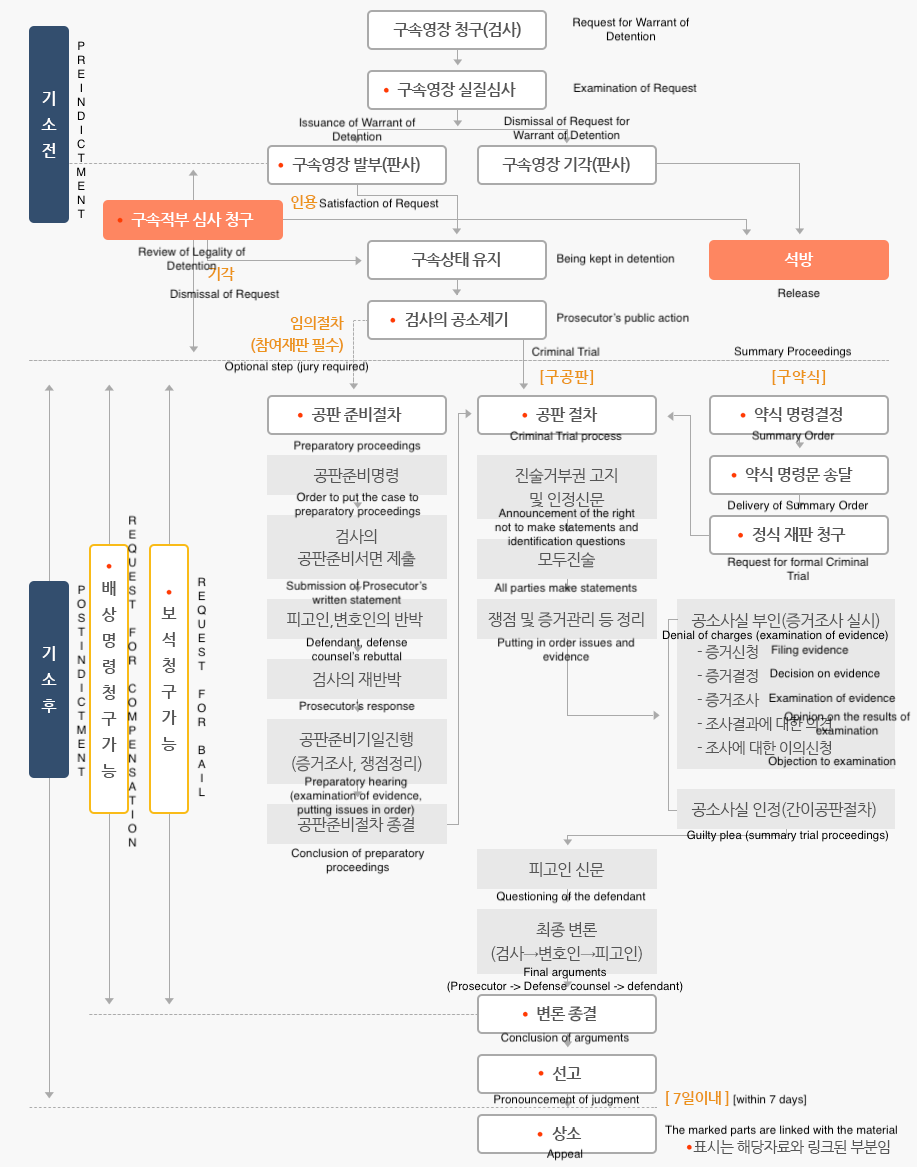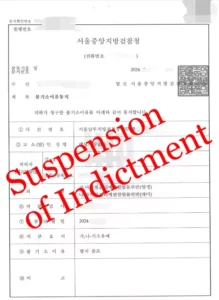1. Criminal proceedings (Criminal lawyer in Korea)
Table of Contents
Criminal proceedings can be divided into pre-indictment and post-indictment depending on when the public action was filed. The pre-indictment stage includes steps from the Request for a Warrant of Detention to Indictment itself. It consists of the prosecutor’s request for a warrant of detention, examination of the request, and request to review the legality of the arrest and detention. If a warrant of detention is issued as a result of the prosecutor’s request for a warrant of detention and examination of the request, or if the request for the review of the legality of the arrest and detention is dismissed, the suspect will remain in detention. However, if a warrant of detention is not issued, the request gets dismissed at the examination stage, or the request for the review of the legality of the arrest and detention gets satisfied – the suspect gets released.
2. The post-indictment stage
The post-indictment stage can be comprised of either criminal trial or summary proceedings. This stage includes preparatory proceedings, an optional step (participation of jury is required), and, after the procedures above are over, the conclusion of arguments and pronouncement of a sentence are also included in this stage. Alternatively, before the conclusion of arguments, a request for compensation and a request for release on bail may each be filed.
If the prosecutor requests summary proceedings, the judge may issue a summary order or try the case in the traditional manner through a criminal trial. If a person wants to file a protest, they can do so within seven days from the date of receipt of the notice of summary order by submitting it in writing to the court that issued the order and requesting a formal trial. Then the case gets tried through a traditional trial proceeding. Preparatory proceedings consist of the order of preparatory proceedings, submission of written statements by the prosecutor, the rebuttal of the defendant/defense counsel, the prosecutor’s response to the rebuttal, preparatory hearing (examination of evidence, putting the issues in order), the conclusion of preparatory proceedings and the start of criminal trial proceedings.
3. The criminal trial proceedings
The criminal trial proceedings include the presiding judge’s announcement of the right to refuse to make statements and identification questions, statements by all parties of the process, putting in order the issue and evidence, an examination of evidence if the defendant denies the charges, summary trial proceedings if the defendant pleads guilty, questioning of the defendant, final arguments (prosecutor, defense counsel, defendant), the conclusion of arguments, the pronunciation of judgment. Once both the pre-indictment and post-indictment proceedings are over, a person who would like to file a protest against the pronounced judgment may appeal within seven days from the pronouncement (the day of pronouncement is not included in this period). For a detailed explanation of the step-by-step procedure of the steps reflected in the above flow chart, please refer to the Criminal Procedure Guide.
Get More Help from a criminal defense lawyer in Korea



